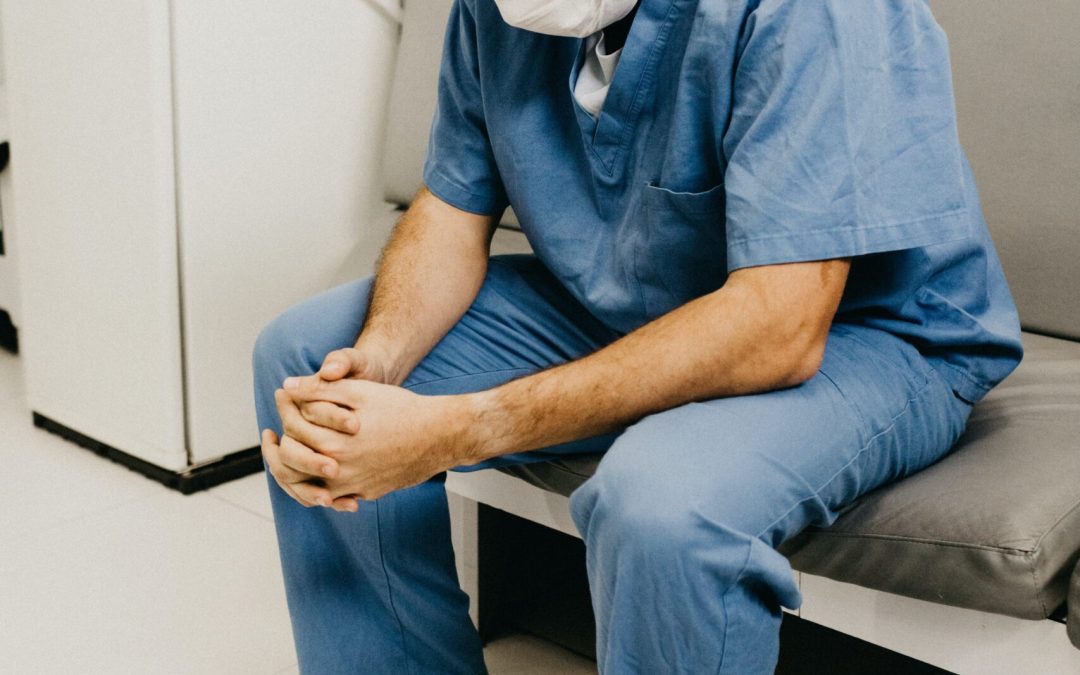When we go on medical missions trips, we may encounter people who do not yet have a personal experience of knowing that all things are possible with God. We might meet someone who has lost loved ones after praying for a long time, for example. They may still be grieving. Or we might meet someone who has never heard much–if anything–about Jesus. There may be a fear that we will not pray with them if they do not offer a gift. We may need to reassure them that we are there for them, it’s on our hearts to pray, we appreciate and value them, and so we don’t need them to give a gift. This may be refreshingly different from what they have expected if they do not hold a similar spiritual belief or if they visit various types of healers before coming to see health care professionals.
Most times, we are likely to meet people who–without fear–welcome prayer, hunger for knowledge, and thirst for Jesus. But there can be times we might meet someone who does not know of Him or has some fears. They might believe that a certain disease is too difficult to take care of or that they won’t know what to do when we leave. While we can’t promise them anything specific about their unique situation, we know we go with God. We can pray they would have a personal experience that all things are possible with God. That they would have healing and access to the right resources at the right times, that those who help them in the coming days will have the guidance of Holy Spirit.
We Go With God
This March, there are multiple world health holidays: World Cancer Day, World Kidney Day, and World Tuberculosis Day. These are three big diseases that elicit strong emotions even in countries where there is a high level of access to medical care. All three are among the top ten global leading causes of mortality. When someone receives a diagnosis of cancer, kidney disease, or tuberculosis, fear may be the first response for many, even if they have access to extended paid or unpaid medical leave or great medical insurance. Not everyone has a personal experience with God or faith, but they do have lots of access to information about a diagnosis. This is good, but there are often so many health care providers and types of treatment to choose from, it can be overwhelming to decide how to go about it at first.
This is not the case in other countries–especially those where there are less doctors or health care facilities per capita. Treatments or medicines that cost less there can ultimately be more expensive or difficult to access. If an ill person lives in a remote place in South Africa or Philippines, for example, they have to arrange transportation or plan a long, arduous walk. Symptoms may become harder to manage on the trip. Even in non-remote regions, low-to-middle income patients may miss time from work and be unable to afford continuing their medicines. Access may be restricted for other reasons. In much of South Africa, for example, dialysis treatment is government-funded, and might not be available to everyone. Also some clinics or hospitals do not permit a person to be evaluated or treated without complete payment. This can be a serious deterrent to seeking help that is needed.
We Can Pray With Belief and Partner With God
When we go on a medical missions trip to underserved regions of the world, we typically will be providing basic health care. But we go with God, and we might be in a position to point someone toward further treatment. We might be able to educate them about an aspect of their health care which will breathe new life into their healing process. Maybe they can learn how a certain medicine can be kept cool in a way that is easy for their living situation. Maybe we can find out if there are others sick in their home, or if there is someone who can learn how to wrap bandages, apply clean, cool compresses or help with household tasks.
When we see the afflicted, we can ask good questions and listen. Empathize and offer helpful suggestions. Pray with them and privately on our own. We can find answers for them from others who are working with us. No matter what, let’s bring with us the goodness that comes with God, the trust that comes with knowing Him and seeing what He has done, the hope that is inextinguishable for those who have accepted Christ. For “the thief comes only to steal and kill and destroy.” But Jesus has come “that they may have life and have it abundantly.” (John 10:10) There is nothing that is impossible with God! We can pray with belief that each person’s needs will be met.
Jesus looked at them and said, “With man it is impossible, but not with God. For all things are possible with God.” (Mark 10:27)
Going With Us to Burundi?
We are heading to Burundi in July, and would love for you to join us! If you are already familiar with the travel requirements (Contact us for current requirements), then your passport is probably ready. You are likely planning some details related to work. You are doing what you can to prepare and spend more personal time with God. Feel free to reach out to us with any questions you may have. To go with us to Burundi, go to the Volunteer page on our website. You are also able to help fund someone else’s trip if you would like to do so at this time.


